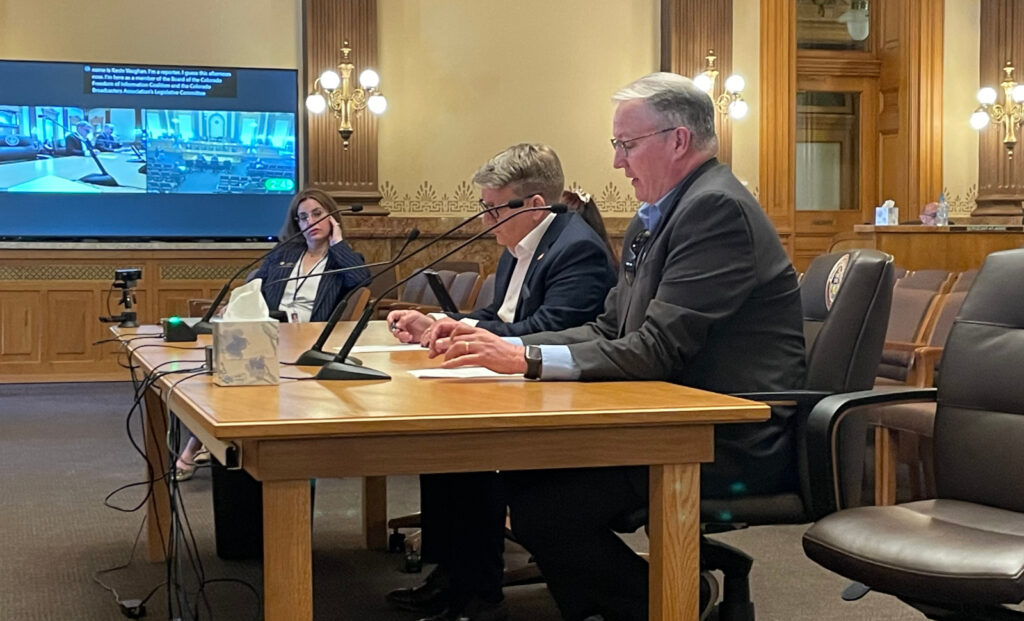Update: Gov. Jared Polis signed HB 24-1244 into law on Wednesday, May 22.
By Jeffrey A. Roberts
CFOIC Executive Director
State lawmakers Wednesday made significant adjustments to a bill that closes autopsy reports on minors, adding a deceased child’s name to the summary of information that must be released to the public following a death.
Disclosing the name is “absolutely vital,” 9NEWS investigative reporter Kevin Vaughan told members of the Senate Judiciary Committee during a hearing earlier in the week.
“Without it, this measure would sanction failing, neglecting and abusing children to death in secrecy to protect the privacy of the people and systems who let those children down,” said Vaughan, a board member of the Colorado Freedom of Information Coalition. “And it would make it much more difficult, and in many cases impossible, to shine a light on systemic failures that demand our attention and action.”

“It’s not always easy to identify victims and investigate the circumstances of their deaths, especially when we consider victims who are society’s most marginalized and vulnerable,” added Tim Regan-Porter, CEO of the Colorado Press Association.
Before passing House Bill 24-1244 on a 5-0 vote, the judiciary committee also clarified that county coroners must release a full autopsy report concerning a minor’s death while in the care or custody of a government agency. A previous version of the bill only allowed, but did not require, the release of those reports.
The previous language “was vague as to whether a coroner had discretion to release the report to the requesting entity, but that was not the intent,” said Sen. Dafna Michaelson Jenet, D-Commerce City, co-prime sponsor of the legislation with Sen. Bob Gardner, R-Colorado Springs. “This amendment was needed to clarify that coroners shall — not may — release the full autopsy report of a deceased minor under the exceptions contemplated in the bill.”
Under the Colorado Open Records Act as currently written, autopsy reports specifically are excluded from a disclosure exemption for medical records. An autopsy report on a homicide victim of any age may be withheld from a requester only under the legal procedure specified in CORA for denying access based on “substantial injury to the public interest.” A coroner must apply to the district court for an order authorizing the withholding of an autopsy report under that standard.
Proponents of HB 24-1244, including the mother of a 17-year-old who was murdered at a Colorado Springs Walgreens in 2022, say confidentiality is needed for minors’ autopsy reports to protect the privacy of grieving families of victims. In legislative hearings, journalists and child-protection advocates pointed out the public-interest benefits of keeping all autopsy reports open, as they have been for many years.
As it goes to the Senate floor, the amended bill declares that an autopsy report prepared in connection with the death of a minor “is not a public record” as defined in CORA. However, coroners would be required to release certain basic information pertaining to the death of a minor, if someone makes a request: 1) name; 2) cause of death; 3) time, place and manner of death; and 4) age, gender and race or ethnicity of the deceased minor.
A coroner also would be required to provide the public and news media with a complete autopsy report on the death of someone under 18 “if the death occurs while the minor is in the custody or under the supervision of the state or a local government, including a law enforcement agency, a detention facility while under foster care, or in a public school.”
Other autopsy reports on minors could only be disclosed to a parent, legal guardian, law enforcement agency or other parties and agencies designated in the bill. For the public and news media to obtain those reports, a judge would have to determine that disclosure “substantially outweighs any harm to the privacy interests of the deceased” and family members.
Anyone petitioning a court for a full autopsy report would be required to serve process on the coroner and the deceased minor’s next of kin. The court would then hold a hearing that includes the petitioner, the coroner and the next of kin.
The legislature tried to seal autopsy reports on minors in 2018, but then-Gov. John Hickenlooper vetoed the bill, writing that “sunshine on uncomfortable and painful topics such as youth deaths can lead to more positive outcomes for other youths.”
Follow the Colorado Freedom of Information Coalition on X (formerly Twitter) @CoFOIC. Like CFOIC’s Facebook page. Do you appreciate the information and resources provided by CFOIC? Please consider making a tax-deductible donation.



